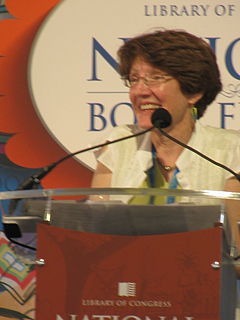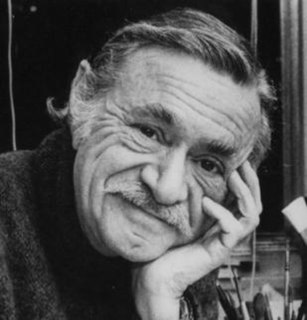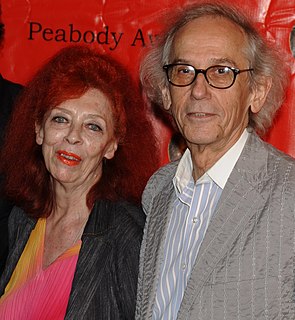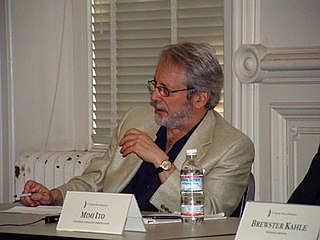A Quote by Katherine Dunn
Each reader projects their own version of the experience inside their skull as they go along. It's probably true that no two people read exactly the same book.
Related Quotes
Books are frozen voices, in the same way that musical scores are frozen music. The score is a way of transmitting the music to someone who can play it, releasing it into the air where it can once more be heard. And the black alphabet marks on the page represent words that were once spoken, if only in the writer's head. They lie there inert until a reader comes along and transforms the letters into living sounds. The reader is the musician of the book: each reader may read the same text, just as each violinist plays the same piece, but each interpretation is different.
Sometimes I read the same books over and over and over. What's great about books is that the stuff inside doesn't change. People say you can't judge a book by its cover but that's not true because it says right on the cover what's inside. And no matter how many times you read that book the words and pictures don't change. You can open and close books a million times and they stay the same. They look the same. They say the same words. The charts and pictures are the same colors. Books are not like people. Books are safe.
The book is finished by the reader. A good novel should invite the reader in and let the reader participate in the creative experience and bring their own life experiences to it, interpret with their own individual life experiences. Every reader gets something different from a book and every reader, in a sense, completes it in a different way.
As a historically voracious reader - pre-baby, I averaged a book every week or two, and when I was a kid, I'd routinely read a book a day - I never understood how some people could not read. When I heard people say they didn't have time to read, in my head, I simultaneously pitied and ridiculed them: there was always time to read.
To me, one of the greatest triumphs in doing a book is to tell the story as simply as possible. My aim is to imply rather than to overstate. Whenever the reader participates with his own interpretation, I feel that the book is much more successful. I write with the premise that less is more. Writing is not difficult to me. I read into a tape recorder, constantly dropping a word here and there from my manuscript until I get a minimum amount of words to say exactly what I want to say. Each time I drop a word or two, it brings me a sense of victory!
Here's what I mean by the miracle of language. When you're falling into a good book, exactly as you might fall into a dream, a little conduit opens, a passageway between a reader's heart and a writer's, a connection that transcends the barriers of continents and generations and even death ... And here's the magic. You're different. You can never go back to being exactly the same person you were before you disappeared into that book.
He is no true reader who has not experienced the reproachful fascination of the great shelves of unread books, of the libraries at night of which Borges is the fabulist. He is no reader who has not heard, in his inward ear, the call of the hundreds of thousands, of the millions of volumes which stand in the stacks of the British Library asking to be read. For there is in each book a gamble against oblivion, a wager against silence, which can be won only when the book is opened again (but in contrast to man, the book can wait centuries for the hazard of resurrection.)
My readers have to work with me to create the experience. They have to bring their imaginations to the story. No one sees a book in the same way, no one sees the characters the same way. As a reader you imagine them in your own mind. So, together, as author and reader, we have both created the story.
With the audience I write for, I want to make sure that the reader is eagerly turning every page. I want each of my books to be an absorbing reading experience, an authentic piece of literature. The worst thing that can happen is for a book to have a chilling effect on the reader, to have a kid pick it up and look at a bunch of footnotes and think, No, I'm not going to read this, it's too intimidating.
The best way is to read it all every day from the start, correcting as you go along, then go on from where you stopped the day before. When it gets so long that you can't do this every day read back two or three chapters each day; then each week read it all from the start. That's how you make it all of one piece.
Write what you want to read. So many people think they need to write a particular kind of book, or imitate a successful style, in order to be published. I've known people who felt they had to model their book on existing blockbusters, or write in a genre that's supposed to be "hot right now" in order to get agents and publishers interested. But if you're writing in a genre you don't like, or modeling yourself on a book you don't respect, it'll show through. You're your first, most important reader, so write the book that reader really wants to read.
I must say I find television very educational. The minute somebody turns it on, I go to the library and read a good book. ANOTHER VERSION I find television very educating. Every time somebody turns on the set, I go into the other room and read a book. ANOTHER VERSION I find television very educational. Every time someone turns it on, I go in the other room and read a book.





































